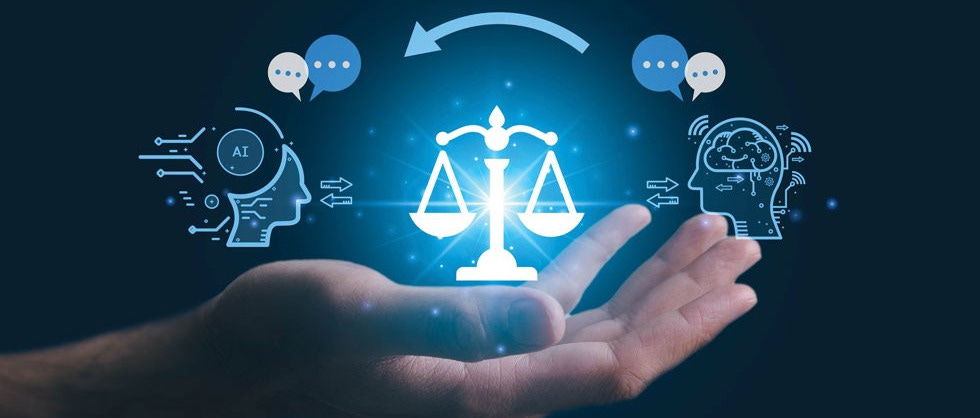AI From Zero - Lesson 7: AI Ethics Made Simple: Fairness, Privacy, and Human Oversight
Fairness, Privacy, and Human Oversight
"With great power comes great responsibility." - Spider-Man
In our last post, we dived in depth into AI capabilities and investigated the concept of hallucination, where AI might sometimes make up responses. As AI becomes more integrated into our lives, it's crucial to understand not just what it can do, but what it should do. This brings us to the important topic of AI ethics. AI ethics is about ensuring that AI is developed and used in a way that is fair, responsible, and beneficial to everyone.
Privacy and Data: What Happens to Your Information?
Every time you interact with an AI, whether it's a voice assistant, a recommendation system, or a chatbot, you are providing it with data. This data could be your voice commands, browse history, personal questions, or even images.
The main ethical concern here is data privacy.
Collection: Who is collecting your data?
Storage: Where is it stored, and how securely?
Usage: How will your data be used? Will it be used to train future AI models? Will it be shared with third parties?
Many AI companies have policies in place, but it's essential to be aware. In general, avoid putting sensitive personal or confidential business information into public AI tools. Always review the tool's privacy policy.
Bias and Fairness: Why AI Can Be Unfair
AI learns from data. If the data used to train an AI is biased, incomplete, or reflects existing societal inequalities, then the AI itself can become biased. This is called AI bias. An AI system might unintentionally discriminate against certain groups of people, even if it wasn't programmed to do so.
Example: Imagine an AI system designed to review job applications. If this AI was primarily trained on historical hiring data where certain demographics (e.g., men from specific universities) were more frequently hired, the AI might learn to favor those characteristics. This could lead to qualified female candidates or candidates from different backgrounds being unfairly overlooked. The AI isn't trying to be unfair, but its learning from biased historical patterns leads to biased outcomes.
This is a significant concern because AI is increasingly used in critical areas like hiring, loan approvals, healthcare, and even criminal justice. Ensuring fairness means actively working to identify and reduce bias in AI systems, and ensuring they treat everyone equitably.
Human in the Loop: When to Trust and When to Double-Check
Given AI's limitations (like hallucinations) and the potential for bias, human oversight is vital. This concept is often called "human in the loop". It means that humans should always be involved in supervising AI, especially when the stakes are high.
Critical Thinking: Always apply your own critical thinking skills to AI-generated content. Don't blindly accept everything an AI says as truth. Fact-check important information.
Empathy and Judgment: AI currently lacks true empathy, moral reasoning, and nuanced human judgment. For tasks that require these qualities, like advising a person on a difficult life decision, providing personalized medical advice, or making ethical calls in a crisis - human input is irreplaceable.
By keeping a "human in the loop", we can leverage AI's speed and pattern-recognition abilities while mitigating its risks, ensuring that AI remains a tool that augments human intelligence, rather than replaces it blindly.
Practice Exercise
Imagine an AI system designed to help decide who gets a loan. If this AI was mostly trained on data from successful loan applicants who were predominantly from a certain demographic, how might that lead to bias against other groups (e.g., younger applicants, specific ethnic groups)? Think about why a human's critical thinking and empathy would be crucial in making the final loan decision in this scenario.
Fun Fact
The concept of "algorithmic bias" (bias in AI systems) became widely recognized when studies showed that some facial recognition AIs performed less accurately on women and people of color, highlighting how biased training data can lead to real-world inequalities. For example, in 2018, a study by MIT and Stanford researchers found that commercial facial recognition systems had an error rate of 0.8% for lighter-skinned men, but up to 34.7% for darker-skinned women.
Learning Reinforcement Questions
Why is "data privacy" a concern when using AI tools?
AI might steal your computer.
AI could share your personal information.
AI makes computers run slower.
AI only works with private data.
What does "AI bias" refer to?
What does the phrase "human in the loop" mean for AI?
True or False: A human's critical thinking and empathy are always needed when using AI for sensitive tasks.
Give an example of how AI bias could negatively impact a specific group of people.
Once you've given it a shot, you can find the <guidelines to answering these questions here> to check your understanding.
Next up
In our next lesson, Lesson 8: Getting Started with AI Tools: Your First AI Toolkit, we introduce you to some of the most popular and accessible AI tools available today.
Licensing, Attribution and Commercial use
© 2025 Nacha – AI Activation Hub, a division of Asset Thinking Ltd. All rights reserved.
For commercial licensing, partnerships, adaptations, integrations, usage within an organization or consulting inquiries, please contact the author via email: zack@nacha.life




I ragged kiasi juu ya jana but catching up